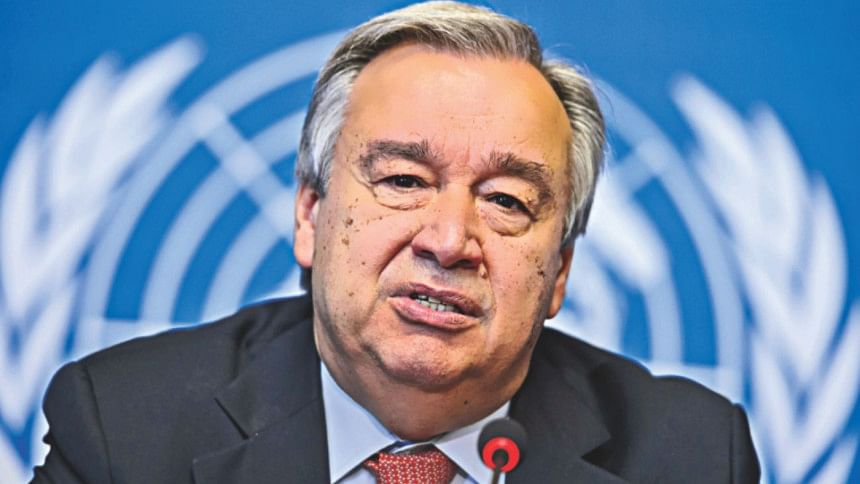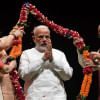UN chief asks India, Pakistan to exercise 'maximum restraint'

UN Secretary-General Antonio Guterres Tuesday called on India and Pakistan to take "immediate steps" to de-escalate tensions between the two nations following the Pulwama terror attack, reiterating that his good offices are available if both sides ask.
The already sour relations between India and Pakistan have worsened over the past week as New Delhi accused Islamabad of the Pulwama attack by Pakistan-based terror group Jaish-e-Mohammed in which at least 44 CRPF personnel were killed. Both countries have called back their envoys for "consultations."
"The Secretary-General stresses the importance for both sides to exercise maximum restraint and take immediate steps to de-escalation, and his good offices are always available should both sides ask," the UN chief's spokesperson Stephane Dujarric told reporters Tuesday at the daily press briefing.
Dujarric was asked about a meeting Pakistan's Permanent Mission to the UN has sought with the Secretary-General and about Pakistani Foreign Minister Shah Mahmood Qureshi saying the UN must step in to defuse tensions between the nations.
"Looking at the situation in general between India and Pakistan, we are deeply concerned at the increasing tensions between the two countries in the wake of the attack on Indian security personnel on February 14 in Pulwama," Dujrraic said.
He said Pakistan's mission at the UN requested for the meeting with the Secretary-General.
In a letter addressed to Antonio Guterres, Pakistan Foreign Minister Shah Mahmood Qureshi had sought the UN's urgent intervention to "defuse tensions" with India in the aftermath of the Pulwama attack.
Qureshi in his letter alleged that the security situation in his country has deteriorated resulting from the "threat of use of force against Pakistan by India".
He alleged that for domestic political reasons, India deliberately ratcheted up its hostile rhetoric against Pakistan and created a tense environment.
Pakistan has repeatedly asked the UN to intervene in Kashmir. Former Pakistan Prime Minister Nawaz Sharif had also sought the US' intervention, saying America was the "most relevant" party to get involved in Kashmir issue.
However, India has rejected any third party intervention in the Kashmir issue and has maintained that all outstanding matters in Indo-Pak ties should be resolved bilaterally.
Over 44 CRPF personnel were killed and many injured on February 14 in one of the deadliest terror strikes in Jammu and Kashmir when a Jaish-e-Mohammad (JeM) suicide bomber blew up an explosive-laden vehicle near their bus in Pulwama district.
Following the attack, India withdrew the 'Most Favoured Nation' status granted to Pakistan and initiated steps to isolate the neighbouring country from the international community.
Hours after withdrawing trade benefits accorded to Pakistan India on Friday summoned Pakistan High Commissioner Sohail Mahmood to the foreign office and issued a strong demarche in connection with the gruesome terror attack on the CRPF convoy.
India's neighbours, including Sri Lanka, Maldives, Nepal, Bangladesh, Afghanistan and Bhutan—and other countries like Saudi Arabia, UAE, Iran, Russia, Germany, Canada, UK, Australia and Canada came out in strong support of New Delhi following the terror attack.
Copyright: The Statesman/Asia News Network

 For all latest news, follow The Daily Star's Google News channel.
For all latest news, follow The Daily Star's Google News channel. 







Comments